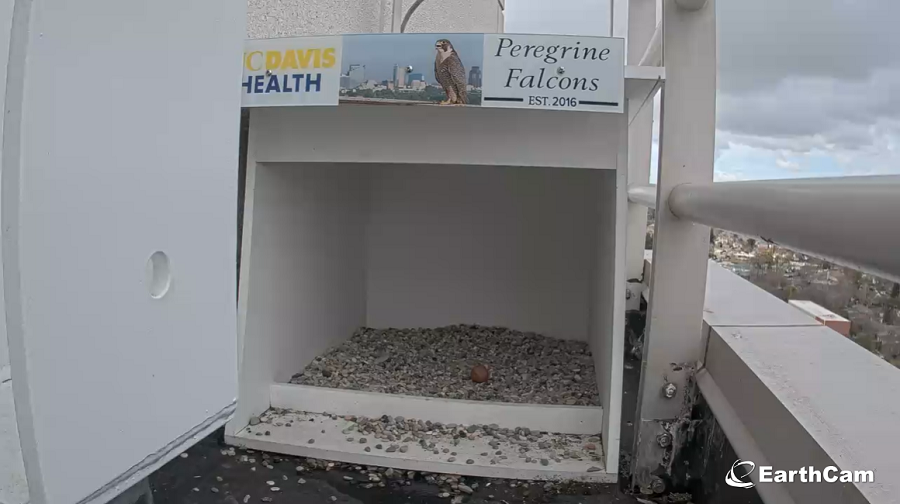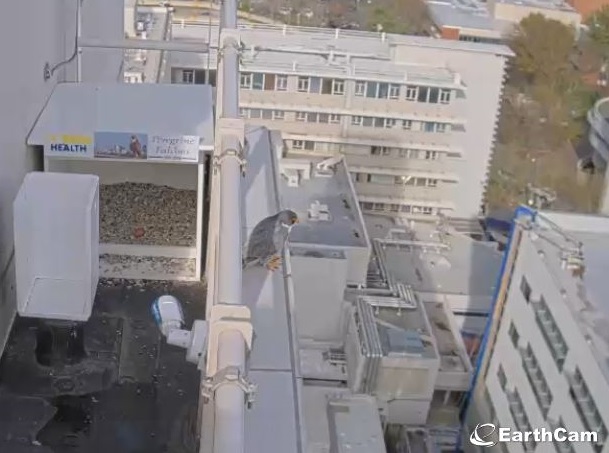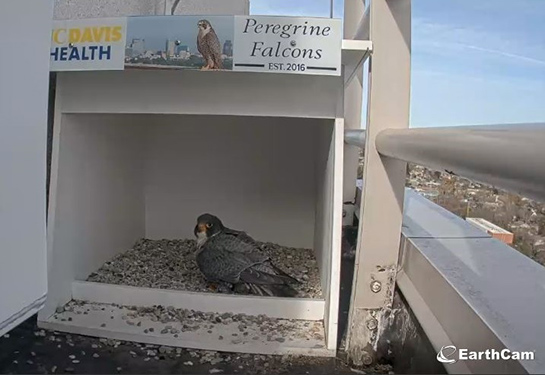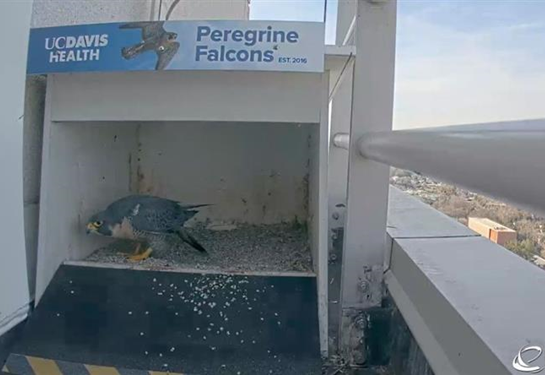I spy with my bird’s eye: A falcon egg in the nest
The peregrine falcons have returned to their homemade nest atop the UC Davis Medical Center, and it appears they already laid an egg.

This year marks the seventh season falcons have called UC Davis Health home. The birds have appeared since at least 2015. Each year, they arrive in March to lay their eggs, which typically hatch around 34 days later. The falcon family will then stay comfortably in the nest through June before departing.

Last year, a falcon family hatched four chicks. Sara Lin from the School of Medicine won the naming rights through a contest and named the hatchlings Millennium, Serenity, Defiant and Roci, after different television or movie starships.
This year, UC Davis Health has installed two new cameras near the peregrine falcons’ nest. Each camera streams in high-definition, 4K resolution, providing a sharper picture for viewing.
Click here to check out the live feed of this year’s peregrine falcon.
About peregrine falcons
Peregrine falcons are known as one of the world's fastest birds. When power-diving from great heights to strike their prey, the falcons can reach speeds of 200 mph.

At one time, the birds were on the federal list of endangered species. They also were one of the first birds placed on California's Endangered Species List. A ban on the insecticide DDT in 1972 helped the species recover enough so that the raptor could be removed from the federal list in 1999. Ten years later, peregrine falcons were removed from the state’s list.





